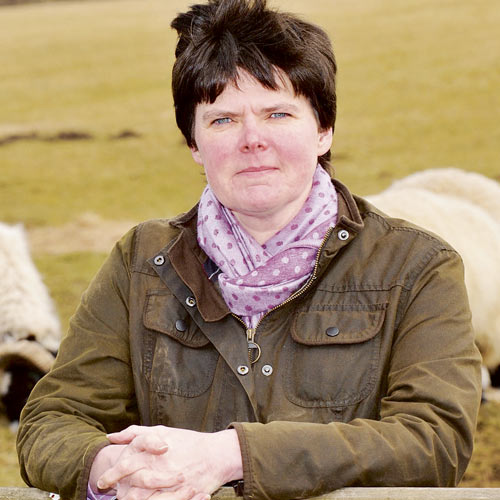Opinion: Farm accident sparks true heroism
 Elizabeth Elder
Elizabeth Elder The BBC Countryfile programme has been running a farming hero competition recently.
There is something about the use of the word “hero” in competitions such as these that often seems to me mildly inappropriate. For example, you can be a local food hero if you bake tasty pies or develop a new cheese combined with a successful marketing campaign. Commendable, but it’s hardly the Battle of Britain or Scott of the Antarctic, is it?
Refreshingly, however, the Countryfile competition did feature someone nominated for something that was rather heroic. This was Robert Bertram, a shepherd who lives and works on the other side of the Otterburn Training Area to us, in Upper Coquetdale.
He was nominated for going out into a blizzard one night this January to search hundreds of acres for a neighbouring shepherd who was missing. Robert eventually found Mark Dey pinned under an upturned quad bike, managed to extract him and brought him back to the paramedics. Mark had lain for hours in a snowstorm with spinal injuries and only his collie dog to keep him warm. He was already suffering from hypothermia and the hospital staff said they were amazed he survived.
What do you think about this topic? Have your say on our website forums
This programme highlighted several things for me. First, it demonstrated once again that people in outlying areas tend to rely on their neighbours for timely assistance when something goes wrong. Of course they are likely to have the kit, the expertise and local knowledge as well as a willingness to help. However, this mutual supportiveness contrasts strongly to my time living in a city, where the only thing I knew about the people who lived above me was that they seemed to enjoy wearing concrete footwear.
The story was also a reminder that this accident was just one of a spate involving ATVs in Northumberland in the past few years – some of which have been fatal. The people involved are usually very experienced and are not attempting reckless stunts. It just seems that in adverse weather conditions on rough ground, there is some inherent risk. We have even had a couple of instances of “unseated rider” on our farm from time to time – although Jake managed to roll away unharmed on each occasion.
I’m not sure what can be done to prevent these accidents, but it would be good to know that you could get help if you needed to. Yet mobile phone coverage in this area varies from poor to nil. It is understandable, given the sparse population and lack of passing traffic, that providers may consider it uneconomic to set up masts everywhere and the National Park Authority may not approve them in any event.
In Mark Dey’s case, he was not able to alert anyone that the accident happened. The alarm was only raised some four hours later because his partner realised something must be wrong as he hadn’t come home. If he had lived alone or she had been away, it is hard to know when people would have started looking for him.
What hill shepherds here need is some sort of emergency beacon device. I think I saw the very thing on one of the last episodes of Top Gear before its untimely demise. The beacon was contained in a very fancy watch retailing for about £12,000 new, or £3,000 second-hand. That’s somewhat out of the price range of the average hill shepherd, but maybe the telecoms companies could club together for an “it’s-cheaper-than-providing-full-mobile-coverage” fund or perhaps these watches should qualify for rural development grants.
Whatever happens in the competition, well done to Robert Bertram.
Elizabeth Elder
Elizabeth and her husband Jake run sheep and cattle on 235ha of hill ground on the Otterburn Firing Range in Northumberland.
